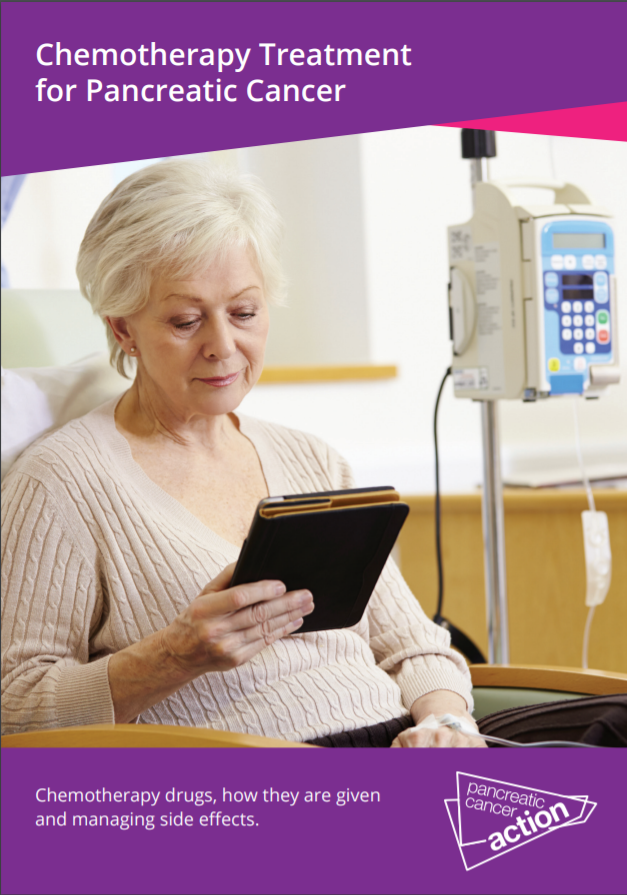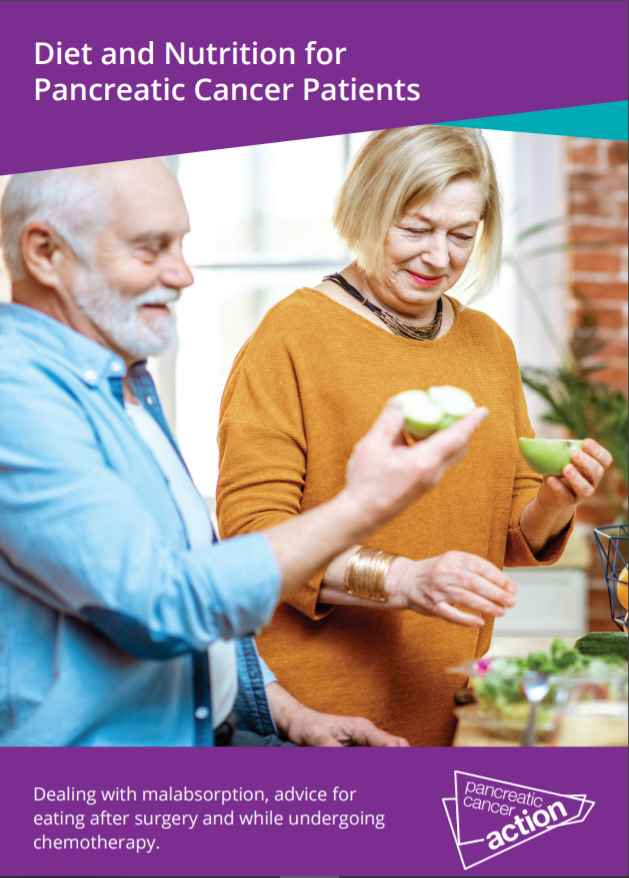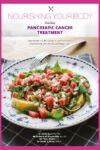Diet and chemotherapy
This section provides advice on coping with changes in taste and smell, mouth sores and nausea and vomiting.
On this page
Coping with changes in taste and smell
Treatments for pancreatic cancer such as chemotherapy can alter your sense of taste or smell. Some people find that they like to enhance the taste of food using spices, herbs and sauces while others find avoiding flavours and eating bland, unseasoned food helpful.
Tips for coping with changes in taste and smell
- To add more flavour to your food, try using garlic, herbs, spices, cheese, pickles, mustards, sugar and salt/ Marinate meat, tofu or vegetables.
- If your food tastes too sweet, try adding lemon juice or salt- staring with a few sprinkles or drops and increasing to taste
- If food tastes too metallic or salty, try adding sugar or honey. Sucking on lemon sherbets or other sharp boiled sweets may also be helpful
- Some people find a drinking straw helpful to bypass your taste buds
- If you are affected by cooking odours, try to stay out of the kitchen while food is being cooked if possible
- Choose foods without a strong smell- sometimes the smell of a food can put you off eating. Cold foods tend not to smell as much as hot foods
- Sometimes it can be helpful to eat with plastic utensils to reduce the metallic taste and avoid drinking out of aluminium cans and storing food in metallic containers.
- Cold food is just as nourishing and often has less smell so may be more enjoyable.
Coping with mouth sores
Some chemotherapy drugs can cause mouth sores as ulcers and infections. If you notice any change in your mouth or throat, such as ulcers or thickened saliva, or if you find it difficult to swallow, contact your medical team.
Tips for eating with mouth sores
- Eat moist foods such as soup
- Avoid foods that are very hot, spicy or coarse
- Suck on ice cubes
- Add cream, fruit and extra sugar to ice cubes if you are trying to put on weight
Coping with nausea and vomiting
Treatments such as chemotherapy may make you feel sick (nauseas) or be sick (vomit). Your doctor will tell you if your chemotherapy treatment is likely to cause nausea and vomiting.
Anti-sickness medication (known as anti-emetics) can help. Anti-emetics may be available as;
- Injections usually given by the nurse before chemotherapy
- Tablets which can be taken regularly at home
- Wafers which are dissolved under or on top of the tongue
- Suppositories which are placed in the rectum where they dissolve
- Liquid medication added to the chemotherapy mix
- Patches worn on the upper arm
- Through a syringe driver which is a constant delivery of medication through a needle, often placed in the thigh, which comes in a portable battery powered box
You may be prescribed medication before treatment to reduce side effects. Some people find it takes some time before they find a medication that works for them. Let your nurse or doctor know if you still have nausea after a few days of taking the medication or if you have been sick for more then 24 hours.
Tips for coping with sickness and nausea
- Eat little and often especially before your treatment and drink as much fluid as possible
- Instead of drinking a lot at once, try sipping small amounts of liquid often. Sucking on ice cubes can help to increase your fluid intake
- If you wake up feeling sick, eat a dry biscuit (ginger biscuits may help with nausea) or a slice of toast. This is better than skipping breakfast or forcing yourself to eat. If you are diabetic, consult your medical team
- Fizzy drinks such as ginger ale or soda water can help relieve an upset stomach
- It is important to keep up your fluid intake to prevent you from becoming dehydrated if you have been vomiting a lot. You should contact your medical team if you are unable to keep fluids down
- Avoid strong odours and cooking smells, which can trigger nausea and vomiting
- Sometimes the taste of certain types of food can change. Your sense of taste should return to normal a few weeks after you have completed your treatment.
We have a free recipe book available for patients, click here to learn more!



